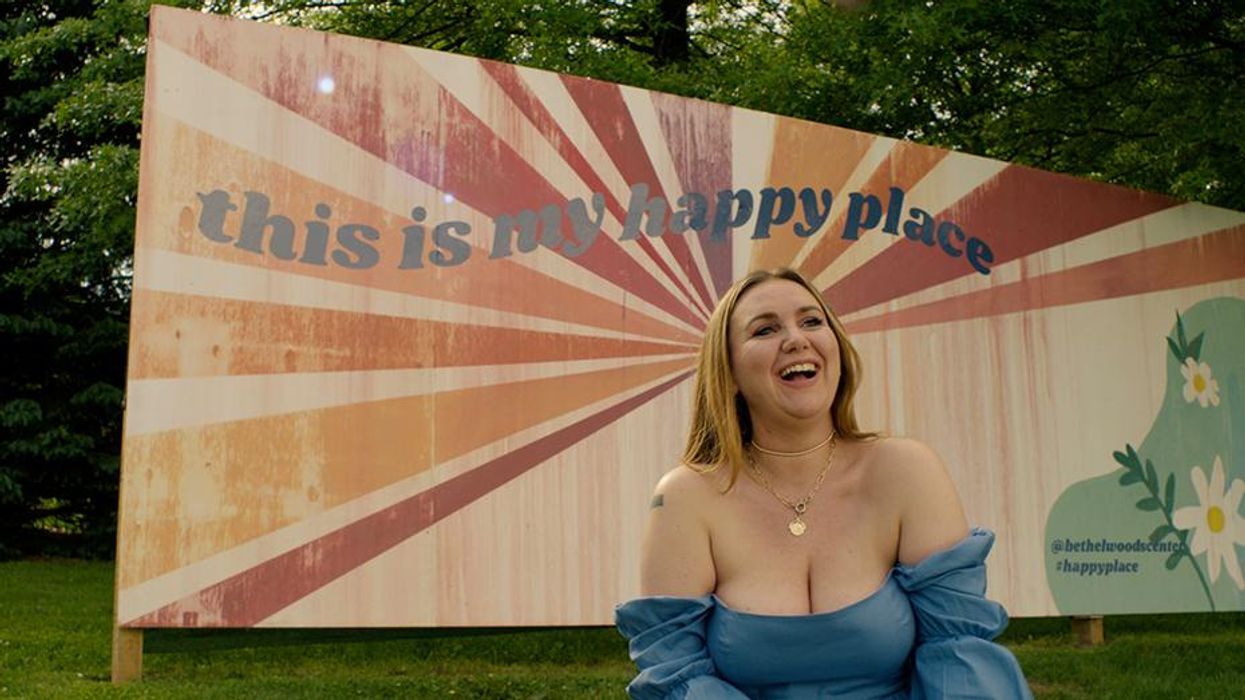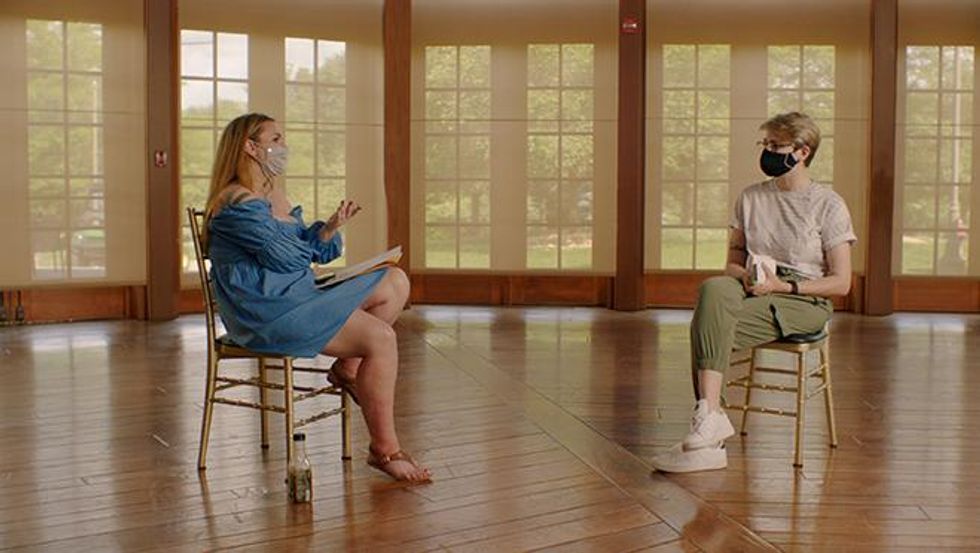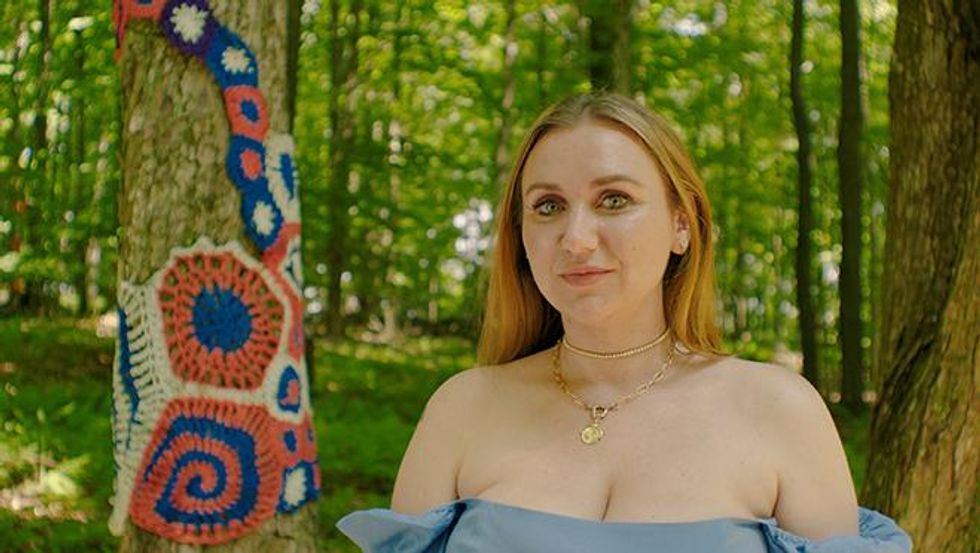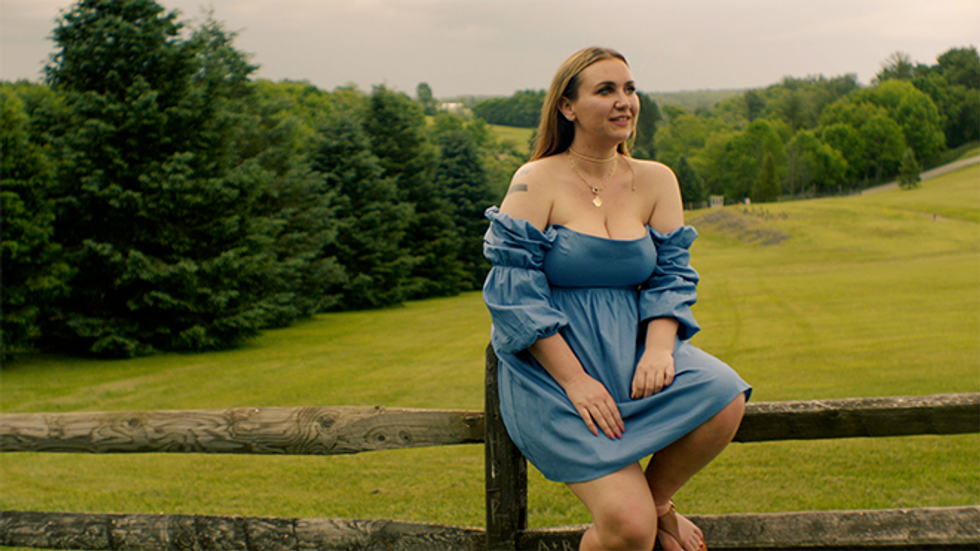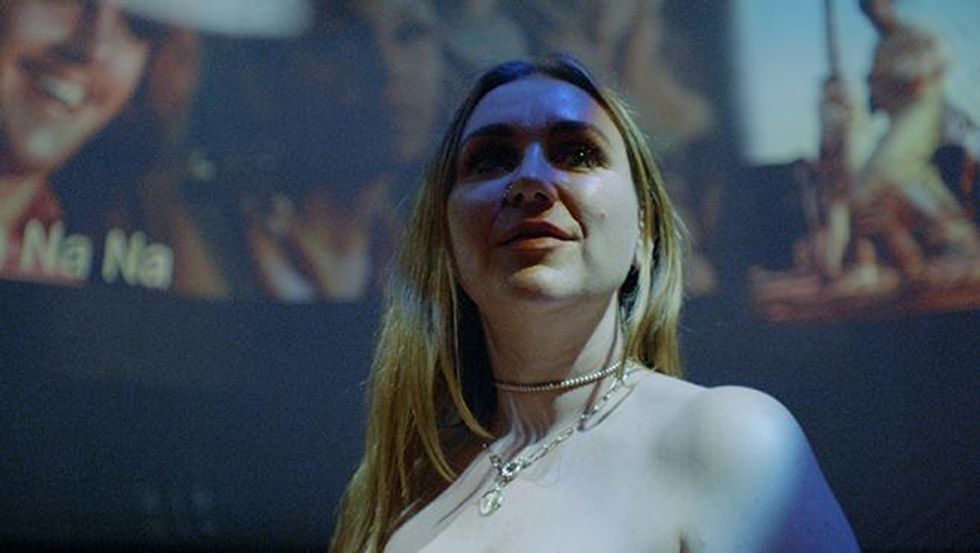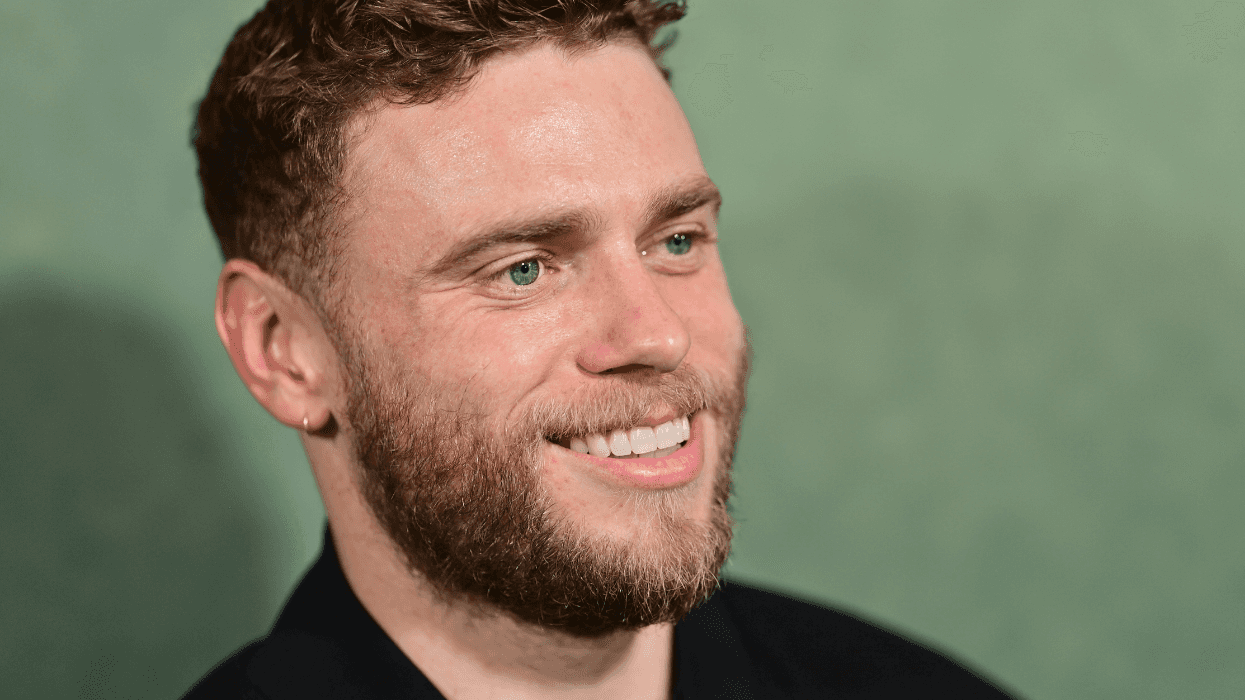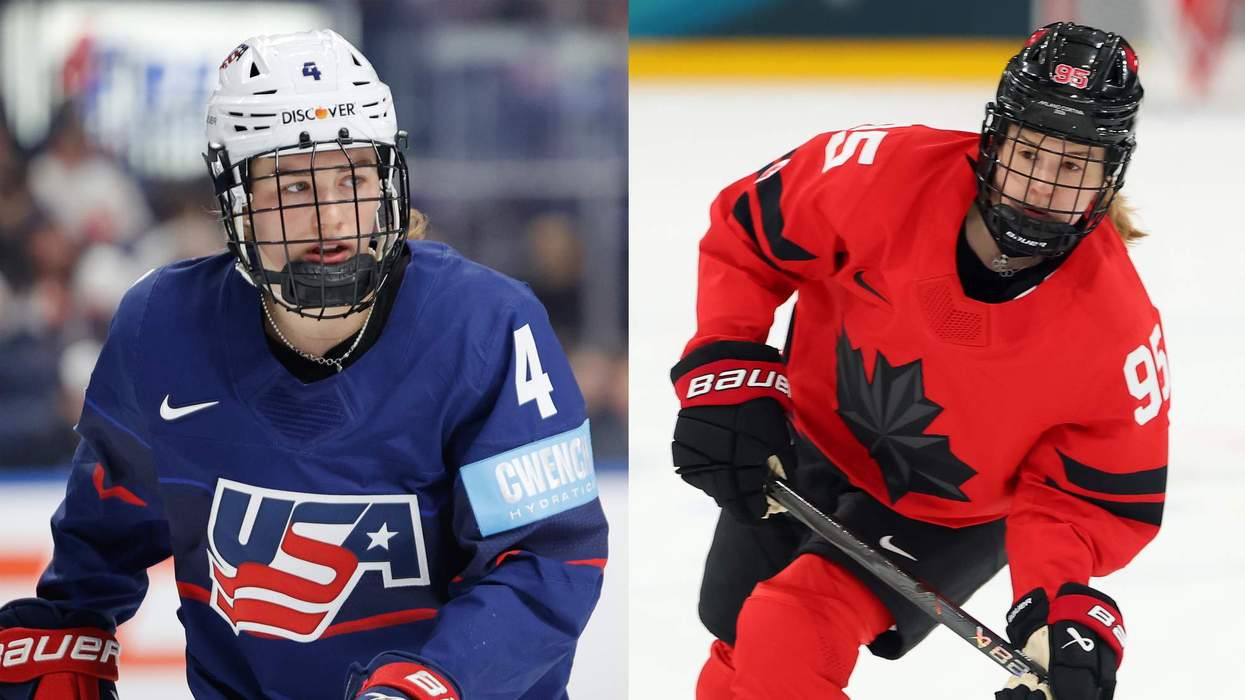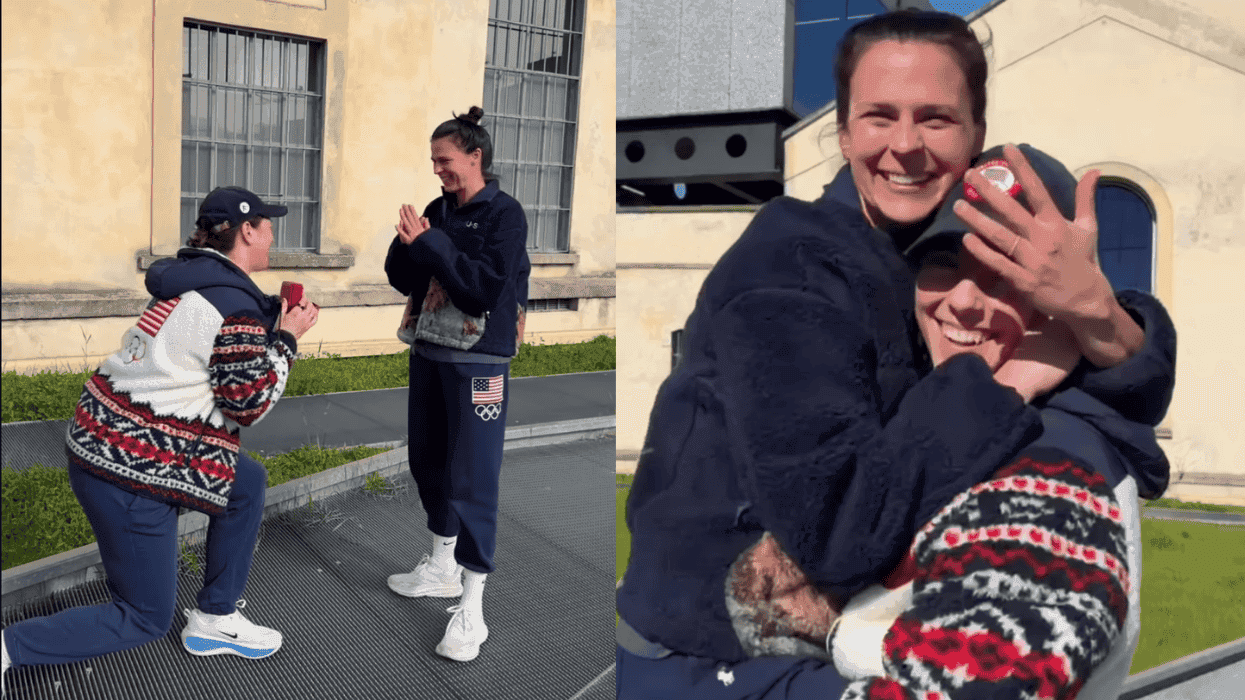The following Q&A is from travel veteran Meg Ten Eyck, editor of EveryQueer, interviewing Ele Hein, a queer Landscape Preservation Fellow at the Bethel Woods Center for the Arts (both pictured) and Julia Fell, Assistant Curator of The Museum at Bethel Woods.
Meg Ten Eyck: What lessons from Woodstock do you think are still relevant today within the LGBTQ+ community?
Ele Hein: A big recurring theme with Woodstock is a sense of community and seizing the moment to create opportunities for community where you are. That's a lesson that you still have in the LGBTQ+ community today of just trying to find people with these same values and ideas. Woodstock was half a million people who all agreed that they wanted peace and love and music and was a visual representation in mass of the whole free love movement. That wasn't without resistance, similar to a lot of situations where the LGBTQ+ community comes together and experiences protests.
Woodstock was very similar in many ways to that. Many members of the local community were very, aggressively against folks coming for the Woodstock Festival. That's something that we still see today in the ways that Pride is protested or sanitized. This year, in particular, when we're seeing calls for the exclusion of the kink community in Pride events. In both instances there were calls to tone it down and to not be so open about sexuality. They wanted to take the sex out of sexuality. In both they were trying to be overly controlling of what the community can be while taking away our ability to shape things, how we see fit. And I think there are many lessons from Woodstock that are similar to that, that we can pull from.
MTE: From your perspective, what role do you think travel plays in cultural exchange for the LGBTQ+ community?
EH: Every community is different, and that's even outside of queer communities. Every community locally is different. Traveling is a way to better understand that and to build empathy and understanding, and to understand what queer means to different communities. If you go abroad, the word "queer" might have a very different context in other countries, it could have a different context, even in very small, very small communities outside of New York state. Travel is about building that understanding of what those communities are and how they can interact with each other, just to build a better understanding of one another and ourselves.
MTE: Definitely, and I've always said no matter what country you're in, no matter what city you're in when you go to a queer event, you have something in common and you can feel it.
Julia Fell: Going to Woodstock was the first time for a lot of more isolated, suburban teenagers that they felt that they were being heard and that they had something in common with the person next to them and that they weren't the only person in their community who felt the same way that they did. Once they were at Woodstock, they realized there were people like them all over the country traveling specifically to this event--they just didn't have the opportunity to see each other before. We did have people coming in from at least thirty-eight states in the US and three Canadian provinces. Those numbers will probably go up as we collect more data, but it really just goes to show that there were a lot of people who are isolated and felt very alone, whether it was just in their ideology, their religion, or their sexuality, you know, and then when they came to Woodstock, it was an epiphany that they were not the only one.
MTE: That's such an important thing for queer people to have that feeling of togetherness and belonging. I'm going to pivot a bit more into some travel questions, if you don't mind. I want to learn a little bit about the area and the things to do here. One of the things that we're excited about is travel, opening up post-Covid-19 and learning about how to do that safely. The interest in smaller, more locally-focused trips is so crucial right now.
EH: The hiking in these areas is excellent. There are so many great spots around here and in the Hudson River valley. One of my favorites is the hike to the Cornish Estate, which is an abandoned mansion from the early 1900s that burnt down. All of the stone is still standing and you can explore the ruins. There's just tons of beautiful hiking, several other trails in the area are all within 10 or 20 minutes. There's also some really great food around here, both in Bethel and around Sullivan county.
I am a coffee and tea fanatic. I love them so much. My favorite place to go is called 2 Queens Coffee, which is a gay-owned cafe. The guys who own it are so sweet and they're always working, so you can chat with them in person. The drinks that they have are just amazing. I haven't had a single thing there I didn't like. They raise bees and make their own honey, so their honey latte is to die for--I would 100% recommend it.
The Stickett Inn, in Barryville, is a queer-owned hotel that often hosts LGBTQ-themed events. And from what I hear from the locals here is just a fabulous place overall. Also up in Delaware County, there's another gay-owned hotel, The Roxbury Hotel. There's also a couple of other places around, such as the Catskill Mountains Resort, which is in Barryville, and The Bradstan Boutique Hotel, which is at The Eldred Preserve, an up-and-coming sort of resort experience.
MTE: So many excellent recommendations. Beyond the ones that you have already touched on, are there any other queer businesses travelers should know about in town?
JF: There's a whole lot, actually, in the Sullivan County Catskills. First and foremost, Catskill Provisions, which is a distillery that's based in Long Eddy and in Calico, New York. They also have bees and make their own honey, which they use for their liquors, and Bethel Woods actually works with Catskill Provisions, frequently.
MTE: When you are looking to travel, what do you look for when you're booking an accommodation? As a queer person, what's important to you?
EH: I always search online for "LGBT safe" and then the name of the place where I'm going, just to make sure that it's an accepting place that I don't need to be, super quiet about anything or, like, hide any of my pins or anything like that. Finding LGBT recommendations online is always really helpful. One of the things I'm hesitant about is when it's not clear, if the article was written by someone who identifies as queer and then if the places listed are queer-owned, queer-run, or if they're just places that like, won't throw you out if they find out that you're queer. If it explains pretty well the experiences that people have had there, then that's easily my favorite resource.
MTE: What makes you feel more comfortable or accepted while you're traveling?
EH: Some of my favorite places that I've ever traveled around--there are a lot of times I mentioned the rainbow flags in that district in Auckland. I just feel like that's a very, forward way of saying we accept you. We need you--won't push you out.
In terms of my identity specifically, that's always something that's really awesome. I've seen places with stickers on the doors that have either, like, "all are welcome" or "co-exist," or again, like a rainbow flag or something like that. And just, I look for little things like that, and that always just makes me feel a little bit more comfortable where I am.
MTE: Why is it important to be accepted and what that acceptance looks like to you?
EH: I think the ability to just discuss who you are as an individual is such a big thing. Being able to present in the way that you feel most yourself makes such a big difference. Something that I've really appreciated while working here [was] when I told my coworkers, I use they/them pronouns--there was no questioning of it. There was no, like, demand for me to educate them on that. As much as I love when allies are trying to educate themselves, it's always a little bit off when people are like, "oh, well, explain that." There was none of that, which is really cool. I mean, places where I can do my hair the way I want without people giving me looks or anything. And I know that's very different, for different people within the queer communities. I think places that are accepting or a place where people can feel accepted, you should be able to be any gender, any identity, any, anything, and not have people looking at you funny or questioning why you're doing things, or if there's like some hidden reason aside from you just being yourself.
MTE: Can we end with your thoughts and feelings about why it's important to travel?
EH: Oh, that's a big question. Traveling allows you to expand your understanding of what it means to be human and what it means to be anything at all. I have found that the more I travel, the more I understand different types of people, those who have similar identities to me, and then those I have very little in common with.
I'm somebody who talks with people a lot. So when I travel, I like to talk to the person that's next to me on the train or chat with the person in the next seat on the plane. You just get to know people with such diverse backgrounds and such interesting stories. I've met so many people who need may not have even known I was queer and not knowing that I was American and not knowing that I was any number of things, but you can still have that sense of connection with other people. And I think that's really incredible. And that's why I think traveling is so, so important for everyone to do.



